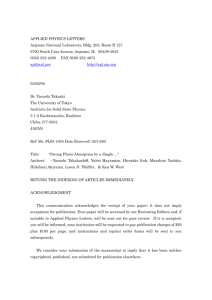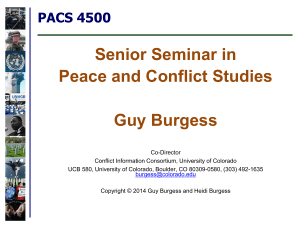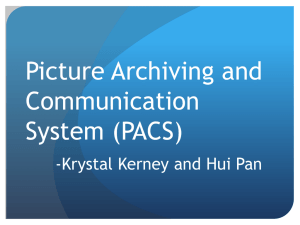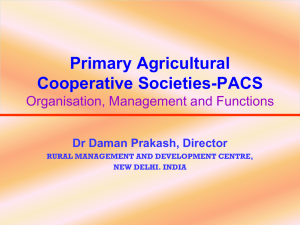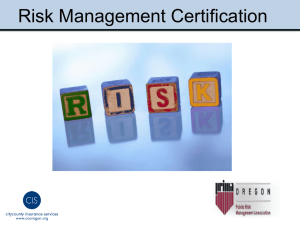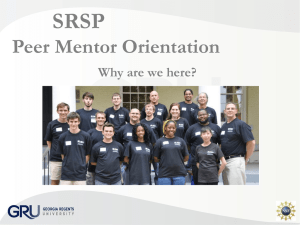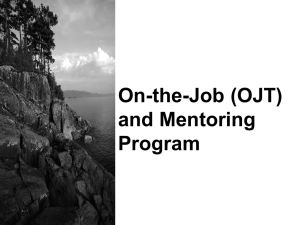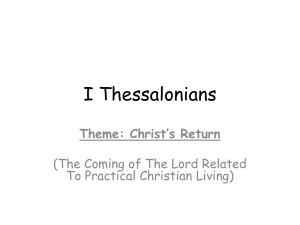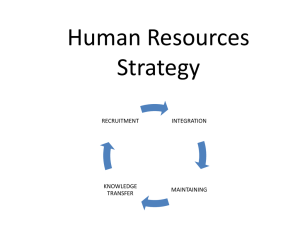PACS presentation Julie Keating June 2014
advertisement
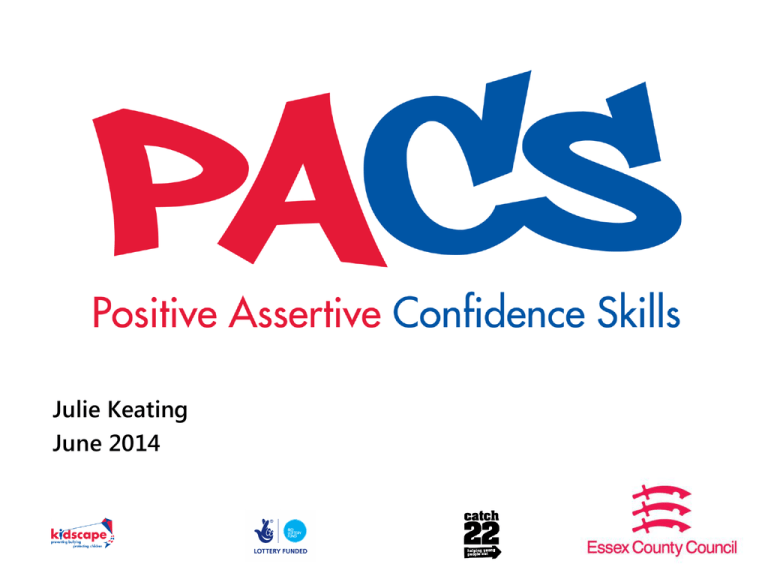
Julie Keating June 2014 What is PACS • Early intervention programme years 5, 6, 7 and 8 • Delivered over 6 weeks • Small groups 8 -12 young people • Collaboration between PACS trainers and learning mentor • Staff trained • All materials provided • No cost to the school 2 The Essex journey to PACS • Relationship with Kidscape • Agreeing delivery terms and conditions • Recruiting staff • Promoting with schools • Starting delivery • Understanding the wider picture 3 4 5 Being part of Realising Ambition What does this mean for Essex? • Opportunity to participate in a significant research programme • Fidelity • Delivery closely monitored • All resources provided • Contract to deliver • Opportunity to look at sustainability of the programme 6 Programme objectives 1. Provide a creative and interactive programme for vulnerable and challenging young people using positive assertiveness strategies for dealing with situations of conflict. 2. Enable young people to understand how to use assertive behaviour in response to challenging situations. 3. Encourage young people to use mediation as a tool when faced with challenging situations. 4. Develop young people's social skills and social interaction. 5. Raise confidence and boost young people's self-esteem, thereby enabling them to create and sustain a stronger sense of their own identity. 7 Who is the programme for? PACS Year 6 Students Selection Criteria (please mark where appropriate) School: Year group: Student Name 1 2 3 4 5 6 7 8 9 10 8 Disengaged Behavioural Class Involved in Benefit Learning Mentor from school issues / low exclusions bullying from small Support self esteem group work How the programme works • Week 1 – PACS trainer and learning mentor: 2 hours • Weeks 2 and 3 - learning mentor: 1 hour • Week 4 - PACS trainer and learning mentor: 2 hours • Week 5 - learning mentor: 1 hour • Week 6 - PACS trainer and learning mentor: 1 hour • Four month review - learning mentor 9 Week 1 – delivered by PACS trainer with learning mentor support • Principles of PACS • Learn the difference between aggressive and assertive behaviour • Recognise and respond to your own emotions – exercise • Video – choosing and being responsible for your behaviour • Role play – recognising emotions in yourself and others • Developing strategies to deal with challenging situations 10 Strategies Surround yourself with people who make you feel good about yourself Be more in control of behaviour Negotiate with each other through the problem Remove yourself from the situation Expect positive reactions Try to calm down Avoid using physical or verbal aggression Listen to each other Explain how the situation makes you feel Make time to talk to the person Don’t be biased Ignore it and just let it go Explain how you feel React calmly and not aggressively Talk it out Write down the things you want to chat Talk to someone else about your situation about to get advice Ask someone "nicely" to stop doing something Putting yourself in someone else's shoes Focus on the positive points Make them laugh and keep them calm Walk away from the situation Count to 10 and breath deeply to calm down Find a friend or someone you trust to talk to 11 Weeks 2 and 3 – learning mentor • Incredibly important • Journal work / reinforcing messages / SDQ 12 Week 4 – delivered by PACS trainer with learning mentor support • Review – what's been working well • The last time I felt - Sharing examples of using assertive strategies • What’s up carousel and what could you do - exploring further ways of coping with difficult situations • Alphabet argument – exploring mediation • Sort it out – applying what you have learnt • I might, I could, I will… – further exploration of the days learning 13 Weeks 5 – learning mentor • Journal work / reinforcing messages 14 Week 6 – celebration and evaluation PACS trainer and learning mentor • Review of PACS principles • What they have learnt • Evaluation questionnaires • Certificate 15 Evaluating the programme •Trialled in London •Replication in Essex, Wolverhampton and Oxford •Questionnaires pre and post delivery •4 month follow up •Opportunity to explore wider replication across the country post August 2015 16 Meet the trainers Emma Frost • Alternative education • Circles Farm 17 Sarah Hudson • Behaviour support • Connexions Meet the new trainers Fran Trotter Anne-Marie Pinkney Dawn Lowen Kim Mitchell 18 Dawn Lowen Outcomes from the London pilot • 60% of participants would no longer use violence to solve issues • 50% would try and negotiate if they find themselves in a difficult situation • 45% of students have learnt to talk calmly • 41% “count to 10” before responding • 36% will let an argument go • 29% will ask a friend for advice 19 What school’s say: • I have had some good feedback from some of the last group in terms of them helping others by using mediation and also some have had a great improvement in their relationships with others. (Paula: Thurstable) • Thank you for your support in running the PACS groups in school we have found them to be beneficial to the children. We are already looking forward to working with you again in June! (Hannah: Cherry Tree Primary) 20 What student's say I’ve learnt from PACS that deep inside, I’m a nice person not an aggressive person. So I’m going to change my ways from now on. PACS learnt me that people do think that I’m nice and not annoying and stupid I learnt to control my anger and to be a bit more positive in life 21 PACS has taught me I can be who I want , I don’t have to be a low life. PACS has told me that whenever I am about to hurt other people’s feelings to take a breath and turn away from them. Recap: What is PACS? • Early intervention programme years 5, 6, 7 and 8 • Delivered over 6 weeks • Small groups 8 -12 young people • Collaboration between PACS trainers and learning mentor • Staff trained • All materials provided • No cost to the school 22 Getting involved • Think about how delivery could work in your school • Correct selection of students • Investing in LSA time • Supporting the research element of the programme • Complete the expression of interest form on the table • We’ll be in touch! 23 Any questions? Julie Keating Email: Julie.keating@essex.gov.uk Tel: 03330131160 24
